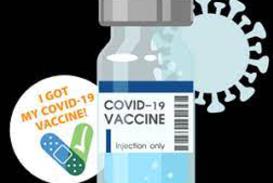HOW ABBOTT CEO MILES WHITE TRANSFORMED GLOBAL PHARMACEUTICAL, DIAGNOSTIC AND MEDICAL DEVICE HEALTHCARE INDUSTRY SECTORS
by John G. Baresky on 11/15/19
A strategic succession
of executive leadership at Abbott
After 21 years as CEO,
legendary pharmaceutical, diagnostic and medical device merger & acquisition strategist
and corporate leader Miles White is handing over the reins of Abbott to his
planned successor, Robert Ford, Chief Operating Officer and President of
Abbott, Inc.
Stanford University and McKinsey alum
Miles White, born in Minneapolis, Minnesota, launched his brilliantly dynamic career beginning with his graduation from Stanford University ( Bachelors in Mechanical Engineering, 1978 and MBA, 1980 ) then signing on at the New York based blue chip management consulting firm McKinsey.
Abbott Laboratories, Inc.
White joined Abbott Laboratories
in 1984 and rapidly ascended through the ranks to the senior leadership position
of CEO and chairman of the board by 1999.
Once at the helm of
Abbott, Miles moved forward with a series of strategic deals which re-shaped
the global pharmaceutical, medical device and diagnostic industries.
Abbott acquires Knoll Pharmaceutical from BASF
In 2000 Abbott bought Knoll Pharmaceutical from German chemical and industrial conglomerate BASF ( OTCMKTS: BASFY ) for $6.9 billion. This deal was instrumental in Abbott and eventually spinoff AbbVie’s growth as it included the now multi-billion dollar blockbuster drug Humira (adalimumab - a TNF blocker). Humira’s worldwide annual sales have been as high as $20 billion. White outmaneuvered front-runner Eli Lilly ( NYSE: LLY ), as well as Bristol-Myers Squibb ( NYSE: BMY ) and Sanofi-Synthelabo ( NASDAQ: SNY ) who were also considered front-runners seeking to acquire Knoll.
It is something to contemplate how the growth paths of these
3 companies would have evolved had they acquired Knoll or how Abbott would have
progressed without Knoll. A further consideration would be how BASF would have succeeded had they not sold Knoll. Humira's commercial success was not guaranteed, undoubtedly Abbott's and White's pharmaceutical business savvy which was carried forth and enriched by AbbVie's strategic capabilities enabled Humira to hit the ground running following its launch with effective market access strategy, a succession of additional FDA approved indications and sales drive outpacing competitors.
Abbott spinoff Hospira acquired by Pfizer
Moving on from the Knoll
deal, White formed up Abbott’s older hospital products unit into a separate
commercial organization that became the Abbott spinoff company known as Hospira
( NYSE: HSP ) in 2004. When it was introduced as a public company, Hospira had 14 manufacturing plants and sales of approximately $2.5 billion. Hospira was acquired about 11 years later for $17 billion by Pfizer
( NYSE: PFE ) in 2015.
MediSense diagnostic and blood glucose monitoring deals sets the stage for Abbott's long term success in global diabetes care
A second significant corporate maneuver was launched by White in 2004 as Abbott acquired diagnostics and blood glucose monitoring company MediSense for $1.2 billion. Quickly glancing ahead, Abbott and White transformed the MediSense acquisition with its FreeStyle and related product franchises into becoming a global leader in blood glucose monitoring despite numerous low cost competitors entering the sector.
MediSense's primary competitors in the diabetes care space, formidable global healthcare companies to say the least, did not fare so well. Johnson & Johnson ( NYSE: JNJ ) exited the diabetes care business by selling off their LifeScan diabetes unit in 2018 through a private equity deal to Platinum Private Equity. Germany-based Bayer ( OTCMKTS: BAYRY ) sold their Contour diabetes care franchise to private equity firm KKR and Panasonic Health in 2015. Switzerland based Roche (OTCMKTS: RHHBY ) significantly downsized its Accu-Chek diabetes care business unit between 2014 and 2018.
Kos Pharmaceuticals acquisition and the unorthodox deal with Boston Scientific to buy Guidant assets
Following the Knoll and
MediSense acquisitions plus the Hospira spinoff; Abbott was back in the
acquisition saddle by acquiring Kos Pharmaceuticals for $3.7 billion in 2006. Based on this buy, Abbott fortified their cardiovascular health oral pharmaceutical portfolio with two cholesterol agents, Advicor and Niaspan, which aligned well with Abbott's triglyceride product TriCor.
White and Abbott executed a finesse asset deal in 2006 when Boston Scientific acquired Guidant, a producer of cardiac pacemakers, implantable cardioverter-defibrillators, stents and other cardiovascular medical technology. Abbott purchased the vascular intervention and endovascular businesses from Boston Scientific and agreed to share the rights of Guidant's drug-eluting stent programs with Boston Scientific. Abbott paid Boston Scientific $6.4 billion in an arrangement comprised of $4.1 billion for the Guidant assets, a loan of $900 million plus Abbott acquiring $1.4 billion of Boston Scientific common stock. While it was an unconventional arrangement it allowed for Boston Scientific and Guidant to close their deal and avoid antitrust issues with regulators while Abbott was able to secure specific elements of Guidant's product line that it coveted.
GE and Abbott
Diagnostics deal unravels
In 2007 White encountered headwinds as a proposed $8.13 billion deal to sell two diagnostic units ( in-vitro diagnostics and point-of-care) to GE fell through. White had partitioned the diabetes and molecular diagnostics businesses away from the transaction as they had more clinical and commercial upside in their future for Abbott to benefit from. Since GE and Abbott mutually agreed to walk away from the deal, no breakup fees were involved.
Advanced Medical Optics
Undaunted by the shortcomings of the GE deal, Abbott acquired Advanced Medical Optics or $1.4 billion in 2009. The deal instantly made Abbott a leading player in optical healthcare as Advanced Medical Optics was one of the top companies in Lasik laser vision surgery technology and cataract surgery lenses.
Solvay and Piramal acquisitions
White continued to outdistance the GE deal setback quickly with Abbott acquiring the pharmaceuticals business of Belgium-based Solvay Group for $6.6 billion in 2010. This deal was followed up by another acquisition in 2010 as Abbott bought Piramal Healthcare’s Health Solutions unit for $2.2 billion. As a result Abbott effectively became the largest pharmaceutical drug manufacturer in India.
At this point in Miles White’s vigorous tenure at Abbott he had completed an array of multi-billion deals that expanded the depth and width of the company’s marketplace and competitive scope. Moving forward from 2010 it became clear he was just getting started.
Creation of Abbott spinoff AbbVie in 2011
In October 2011, Abbott made a strategic decision to partition itself into two distinct commercial organizations, Abbott and AbbVie. Abbott’s business model would consist of diagnostics, medical devices, generic drugs and consumer products. AbbVie would be a pharmaceutical and biotech research and manufacturing enterprise that was launched as a publicly traded company in 2013 ( NYSE: ABBV ). Miles White would continue as the senior leader of Abbott while longtime Abbott corporate executive Richard Gonzalez would lead the new AbbVie corporation. AbbVie has moved forward with numerous deals of its own including its latest acquisition of Allergan for $63 billion in 2019.
Kalo Pharmaceutical and Russian drug company Veropharm acquisitions, Abbott Animal Health sale
White picked up the pace in deals again during 2014 in terms of buying and selling assets. In quick succession Abbott, retaining its NYSE symbol moniker “ABT”, acquired CFR Pharmaceutical Kalo Pharma Internacional S.L. for $2.9 billion and Russian drug manufacturer Veropharm for $410 million. This deal included three manufacturing facilities in Russia for Abbott to establish a presence in this enormous limited market access nation. On a smaller yet still strategic scale, Abbott sold off its animal health unit to Zoetis for $225 million in 2014.
Alere and St. Jude Medical acquisitions in 2016
White kept the pedal to the metal in mergers and acquisitions for 2016 as Abbott picked up Alere for its rapid point of care diagnostics products aligned with infectious disease, molecular, cardiometabolic, toxicology and other patient testing for $5.8 billion.
Abbott moved forward with another buy in 2016 that was almost 5 times the size of the Alere deal by acquiring St. Jude Medical for $25 billion. St. Jude was primarily built up as a company through a string of more than 15 acquisitions dating back to 1976. Its portfolio included patient care products such as implantable cardio-verter defibullators (ICD); pacemakers; electrophysiology catheters; vascular closure products structural heart repair products and neurostimulation devices as well as diagnostic and testing products for cardiac mapping and visualization systems; optical coherence topography (OCT) imaging systems and other medical technology.
Sale of Abbott vision care unit
Sharpening its business focus further, Abbott sold their vision care unit to Johnson & Johnson for $4.3 billion in 2017. Abbott had built up the vision care business with its acquisition of Advanced Medical Optics for $1.4 billion in 2009.
Abbott's future
As chairman of the board, Miles White will still have an important role in Abbott’s affairs. As successor, Robert Ford is at the helm of a global healthcare juggernaut which White has grown from a $75 billion company into a $149 billion enterprise. As the future unfolds, patients, medical professionals, Abbott employees and investors will be expecting more great things from Ford's and White's leadership.
LinkedIn: John G. Baresky
Twitter: Healthcare Marketing Guy

